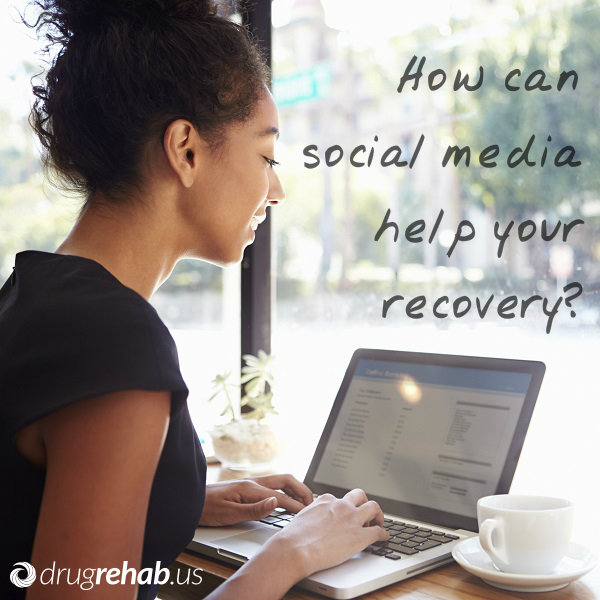How Social Media Can Help You In Recovery
If you use social media sites like Twitter, Facebook, or Instagram, you know that they help you connect with friends old and new, family living far away and new people you’ve never met. What if these sites could be more than just a way to pass the time when you’re waiting in line or a distraction when you should be working?
Social Support And Recovery
 Experts and ordinary people alike have long known that socializing with other humans is beneficial. Social support, whether in the form of having family to rely on, a close group of friends or just peers who share similar experiences, improves your health in a number of ways.
Experts and ordinary people alike have long known that socializing with other humans is beneficial. Social support, whether in the form of having family to rely on, a close group of friends or just peers who share similar experiences, improves your health in a number of ways.
Socializing reduces stress. It also provides a group of people who can offer help when you need it. You repay the favor by helping your friends and family when they need it. Support groups for addiction recovery have been in use for decades for these reasons. Relying on other people helps to strengthen recovery and prevent relapse.
Social Media As Social Support
If you are in recovery, you may already belong to a support group in the real world. Maybe you have a sponsor and go to meetings once a week. There is more you can do to reach out to and engage others, especially with access to technology. Social media support groups are more common now than ever and include groups ranging from traditional alcoholic and drug use support to compulsive gambling and even sex addiction support. Whatever your issue, you can find a support group for it.
Here is how that online group can help you and your recovery:
- Keep you connected – Do you remember what it was like to leave rehab? To go from that place of full support and constant connection to a new life as a sober person? It was pretty scary, but if you could stay connected with the people you came to know and care for in your program, your transition will be easier.
- Provide stability – Support groups in the real world are great and shouldn’t be replaced, but they aren’t always stable. People come and go from these groups and sometimes the groups fall apart altogether. Online social groups are easier to maintain and people can connect quickly to check in without needing to go to a meeting. This can mean a more stable social group over time.
- Share achievements – After a really bad day, you resisted going to the store for a bottle of wine. Instead of going to bed feeling exhausted and alone, get online and share your experience with your social media support group. Get the encouragement you need to face the next day.
- Get and give encouragement – There is nothing like the instant connection you get on social media. If you need some words of support but your next support group meeting isn’t until tomorrow and your sponsor isn’t answering the phone, your social media group can be a lifeline. Even better, you can be there for someone else who needs you in the moment.
- Stay engaged – It’s much easier to turn to an online group than to pack up and head out to a face-to-face meeting. While you should still push yourself to go to meetings, a social media support group can be a great way to keep you engaged in your recovery.
Social media sites have their downsides. They can be distracting and offer up some pretty meaningless content. But if used in a smart way, these sites can provide you with recovery support that may make the difference between continued sobriety and a relapse.
Read Our Other Posts On Relapse Prevention Tips!



